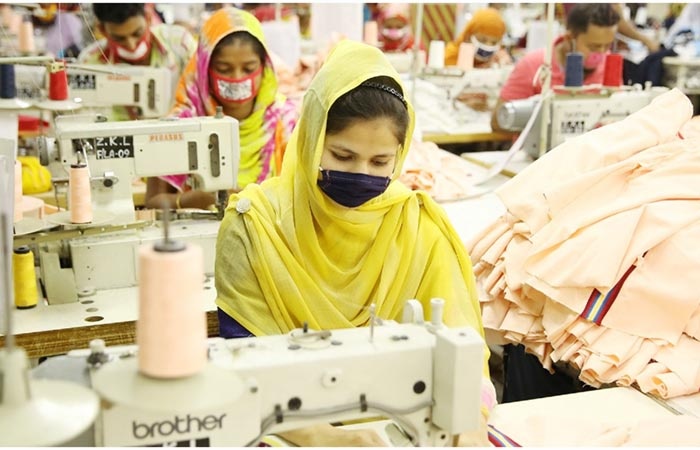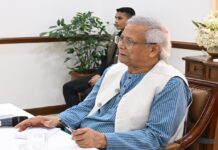Pakistan's textile industry is booming as export orders are shifted from regional rivals Bangladesh and India in South Asia during the virus pandemic. The country is setting a record for ready-made garment exports as foreign buyers cancel orders from Bangladesh and India and turn to Pakistan.
A report by US media outlet Bloomberg said that Pakistan's textile sector is bringing strength to its fragile economy. The country is set to set an export record as orders from South Asian rivals are canceled during the pandemic.
Prime Minister of Pakistan Imran KhanThe country's exports are expected to increase by 40 percent from a year ago to a record $21 billion, said Abdul Razak Dawood, the country's trade adviser. The record exports will boost the country's weak economy.
He said the export figure would increase to $26 billion in the next fiscal year, surpassing the country's total exports in 2021. Nearly 60 percent of Pakistan's total exports come from the textile industry - the country exports everything from denim jeans to towels to the United States and Europe.
In 2020 CoronaPakistan opened factories before India and Bangladesh after the virus pandemic began. As a result, Pakistan received orders from global brands such as Target Corporation and Hansbrand. The Pakistani trade advisor said that in fact, a large number of orders from Bangladesh and India have been transferred to Pakistan.
He said, "Another good thing is that we are now becoming a competitor to Bangladesh. Bangladesh had beaten us in exports even three-four years ago."
He also said that the Pakistani government is planning to announce incentives for exports to markets in Africa, South America and Central Asia from next month.
Pakistan is boosting its exports by offering tax breaks, cheaper credit and electricity compared to its South Asian rivals. The increase in exports has been possible despite the local currency's 60 percent decline against the US dollar since 2018.
Ahfaz Mustafa, CEO of Ismail Iqbal Securities, one of the country's leading brokerage companies, said that Pakistan's exports have become competitive in the last few years. A specific fuel tax has been introduced keeping in mind regional prices.
He said the government is returning the money owed to exporters in a very short time. This has led to a huge depreciation of the local currency. This South Asian country is constantly trying to get out of the economic ups and downs cycle to increase its exports. For this, the country has sought assistance from the International Monetary Fund (IMF) at least 13 times since the late 1980s.
The country is trying to revive a $6 billion bailout program to meet its financing needs despite a record trade deficit. Talking about the country's record high imports, Pakistan's trade adviser said there is not much that can be done about it.
If oil prices reach $100 per barrel this year, it will put pressure on the country. However, Dawood expressed hope that if domestic grain production increases, the amount of food-related imports will decrease.
Pakistan is also trying to boost trade with Central Asian countries by signing agreements and allowing free movement of trucks. Abdul Razak Dawood said that the country's trade volume has increased to $120 million in the current fiscal year, compared to just $14 million in the previous full year.







